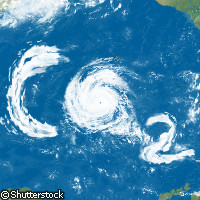EU researchers call for more ambitious CO2 reduction targets for the sake of the world's oceans
Scientists working on the EU-funded CARBOOCEAN project have reiterated calls for a greater reduction of man-made carbon dioxide (CO2) emissions. Current targets are not strict enough, they argue, as contrary to popular belief, their findings show how the regional carbon sinks in the North Atlantic and Southern Ocean that take up more CO2 than they release are not stable and have decreased in nearly a decade. Higher atmospheric carbon dioxide (CO2) concentrations will accelerate ocean acidification and diminish the effectiveness of marine carbon sink areas, new EU-funded research shows. The CARBOOCEAN ('Marine carbon sources and sinks assessment') project, supported under the 'Sustainable development, global change and ecosystems' Thematic area of the EU's Sixth Framework Programme (FP6), reveals that finding and quantifying the CO2 in the oceans, and understanding how it got there is key. Backed by more than EUR 14 million in funding, the CARBOOCEAN project finds that overestimating the ocean's ability to act as a sink can be vital when policy is under development. In the same way that medicine needs a diagnosis and prognosis, so must the ocean's ability to absorb CO2, according to the project partners who are from Europe, Morocco and the US. 'Observations need to be made, and all realistic prognostic climate simulations are dependent upon a correct quantification of the ocean's ability to act as a sink for CO2,' the consortium said. Central to this is determining the role the ocean plays in CO2 uptake and in sink formation. By identifying the role, researchers could develop realistic climate simulations in the future. 'Of all the CO2 that we've emitted into the atmosphere from burning of oil and gas, coal and trees and so on, 50% of it is in the ocean somewhere, and dissolved in the ocean, and so the goal we had is to find it,' explained Professor Douglas Wallace of the German Leibniz Institute of Marine Sciences (IFM-GEOMAR), a CARBOOCEAN partner. For her part, Dr Ute Schuster, a senior research associate at the University of East Anglia, UK, said: 'We are relying on that uptake by the oceans. If the oceans take up less, more is staying in the atmosphere, and that would accelerate climate change. So the fear is [that] if the North Atlantic, which is one of the biggest uptakes in the world, is taking up less and less, it would increase climate change, [and] speed up climate change to a large degree.' By using time series measurements, as well as surface and deep section measurements, CARBOOCEAN has found that seawater is becoming more acidic. According to the partners, organic and inorganic carbon cycles, and marine organisms with calcareous shells are impacted by this increase. The database being developed by CARBOOCEAN will help researchers quantify the carbon sinks that are in the oceans. Moreover, it will fuel collaborative data reporting. In another development, the CARBOOCEAN spin-off EPOCA ('European project on ocean acidification'), is investigating how changes in carbonate chemistry are affecting the oceans. The CARBOOCEAN consortium underlines that goodwill is not enough to save the world from the effects of climate change. Fuelling human knowledge about how anthropogenic emissions affect the climate by warming up the atmosphere is vital. CO2 is the most significant and manageable agent for climate change, the researchers say.
Countries
Germany, United Kingdom



